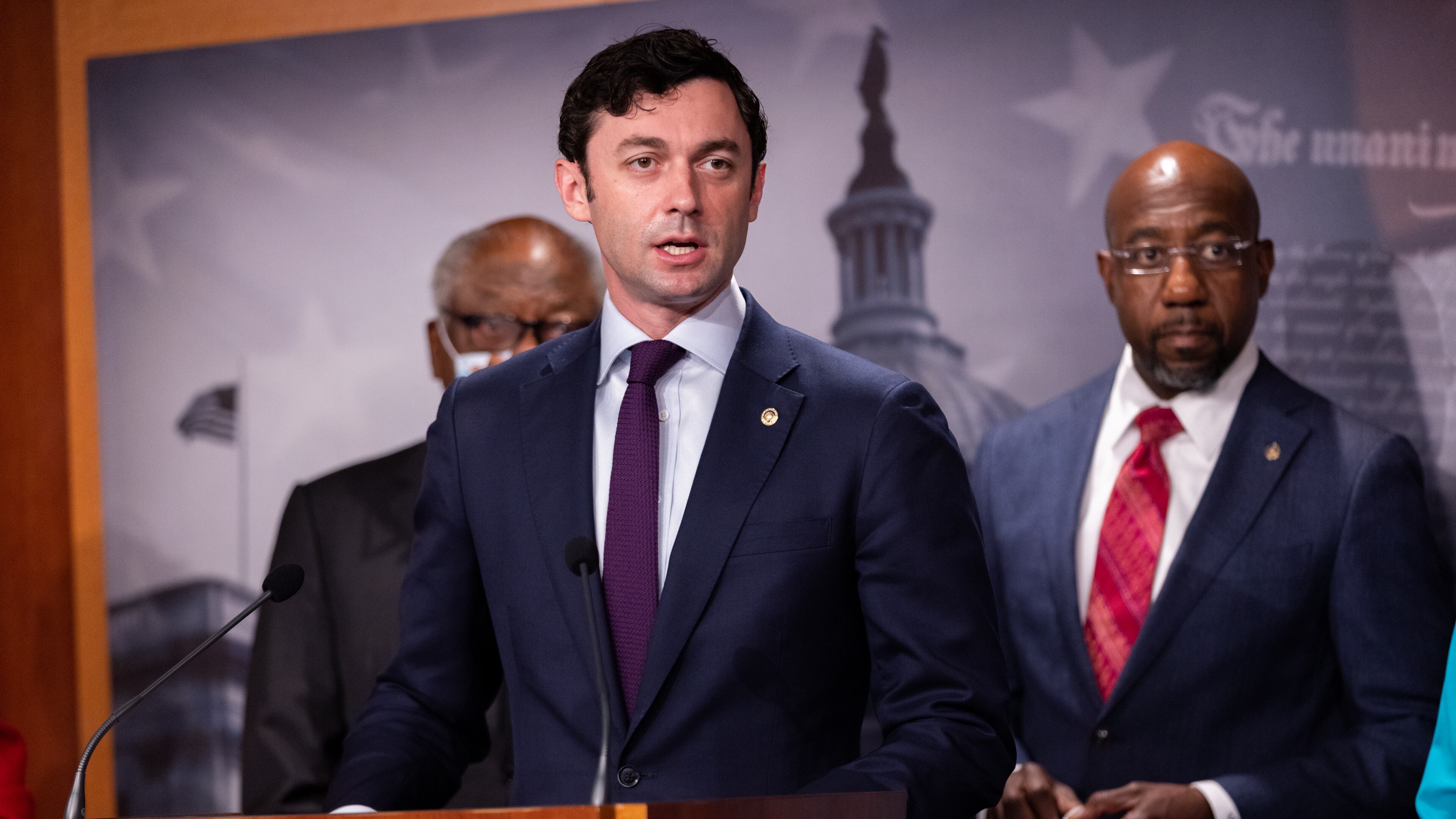Georgia Sens. Ossoff, Warnock work to keep Medicaid expansion in spending package

WASHINGTON — With Democrats in the late stages of drafting a massive social spending and climate change bill, a provision backed by Georgia Democrats that would expand Medicaid in the state is on the chopping block.
U.S. Sens. Jon Ossoff and Raphael Warnock said they have been in hourly discussions with colleagues as they work to preserve the initiative, which would apply to Georgia and 11 other conservative states whose leaders have declined to implement this provision of President Barack Obama’s health care legislation.
They describe it as an equity issue. Residents of Georgia who pay federal taxes like everyone else should have access to the same free or low-cost health coverages that residents of other states enjoy, they said during a joint news conference Tuesday afternoon.
“We’re here together to say that we’re fighting for this,” Ossoff said. “Hundreds of thousands of our constituents in Georgia suffer from a lack of health care. “Folks are suffering and dying, and we have the power here in Congress to ensure that they get the health care that they need.”
On the other side of the internal debate is West Virginia Sen. Joe Manchin, one of two moderates whose opposition to the size and scope of the legislation has forced his colleagues to scale back. He noted Monday that states that already expanded Medicaid are required to pay 10% of the costs, while new states like Georgia wouldn’t have to chip in anything under Ossoff and Warnock’s proposal.
“For states that held out to get rewarded with 100%, that’s not fair,” Manchin told reporters.
Manchin also said that he is worried about adding new federal health care spending when existing programs, like Medicare, are running out of money.
Democrats are hoping this week to settle on the outline on the spending bill that is likely to cost around $1.8 trillion over several years. The package currently is about double that size, meaning that many of its provisions will be scaled down or cut altogether.
Republicans oppose the bill saying it is too costly, so it is unlikely to receive a single favorable GOP vote. That means in the Senate, which is split 50-50, Democrats cannot afford a single defection.
That’s why Manchin’s criticism of the Medicaid expansion provision carries so much weight. However, Ossoff, Warnock and their allies have also reminded party leaders that Democrats wouldn’t have the majority and be in a position to pass the legislation if they had not won their seats earlier this year.
Neither would say Tuesday whether they would withdraw support for the measure if the Medicaid expansion language is removed.
The debate over Medicaid is just one of several health care-related issues that Democrats still need to resolve. Others include paid family leave, controlling the costs of prescription drugs, and adding new coverages to Medicare. In addition, lawmakers are still deciding what climate change provisions to include and how they will increase taxes on the wealthy or businesses to pay for new spending.
More details
Republicans oppose the spending plan saying it is too costly, so it is unlikely to receive a single favorable GOP vote. That means in the Senate, which is split 50-50, Democrats cannot afford a single defection.



